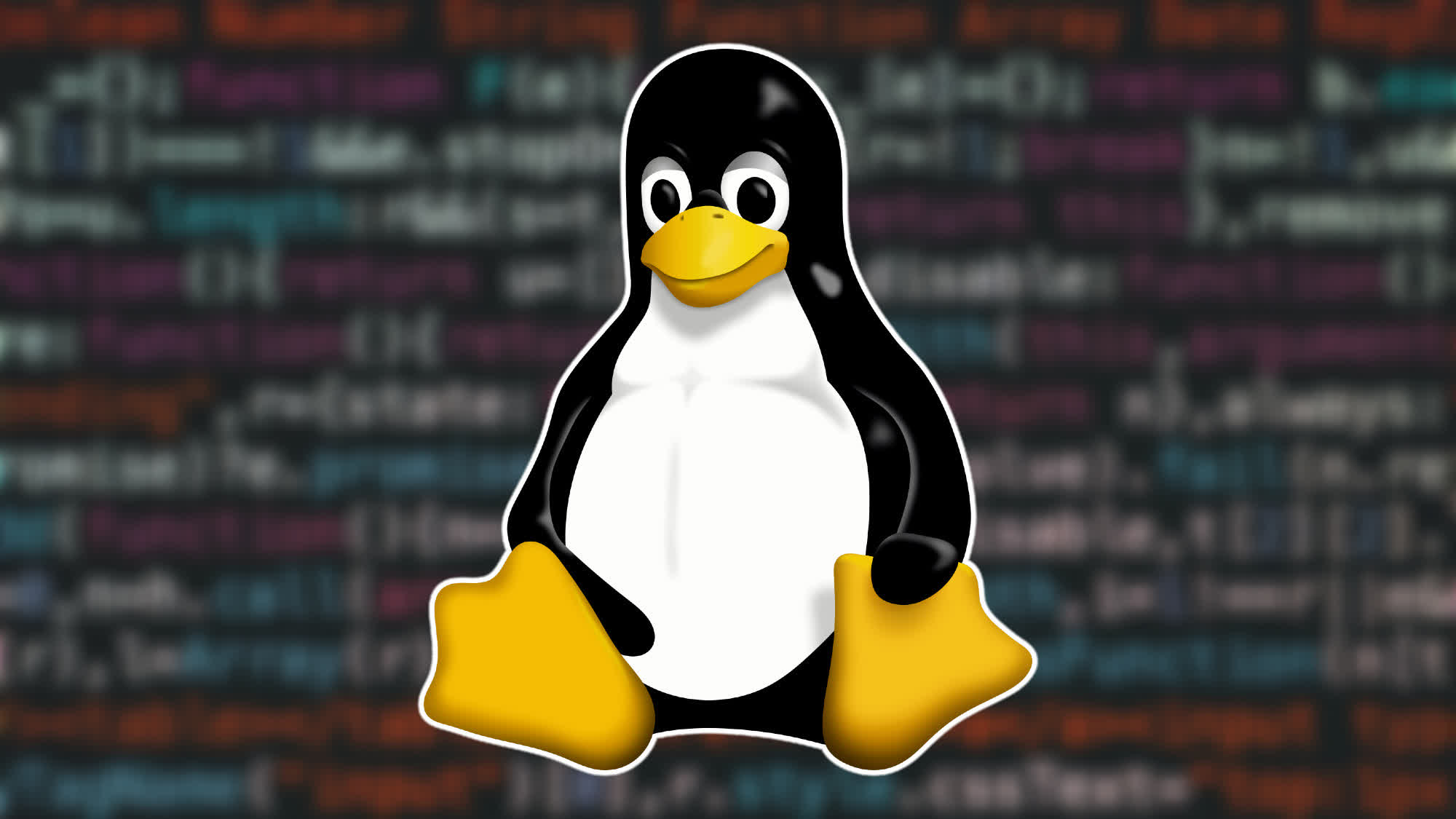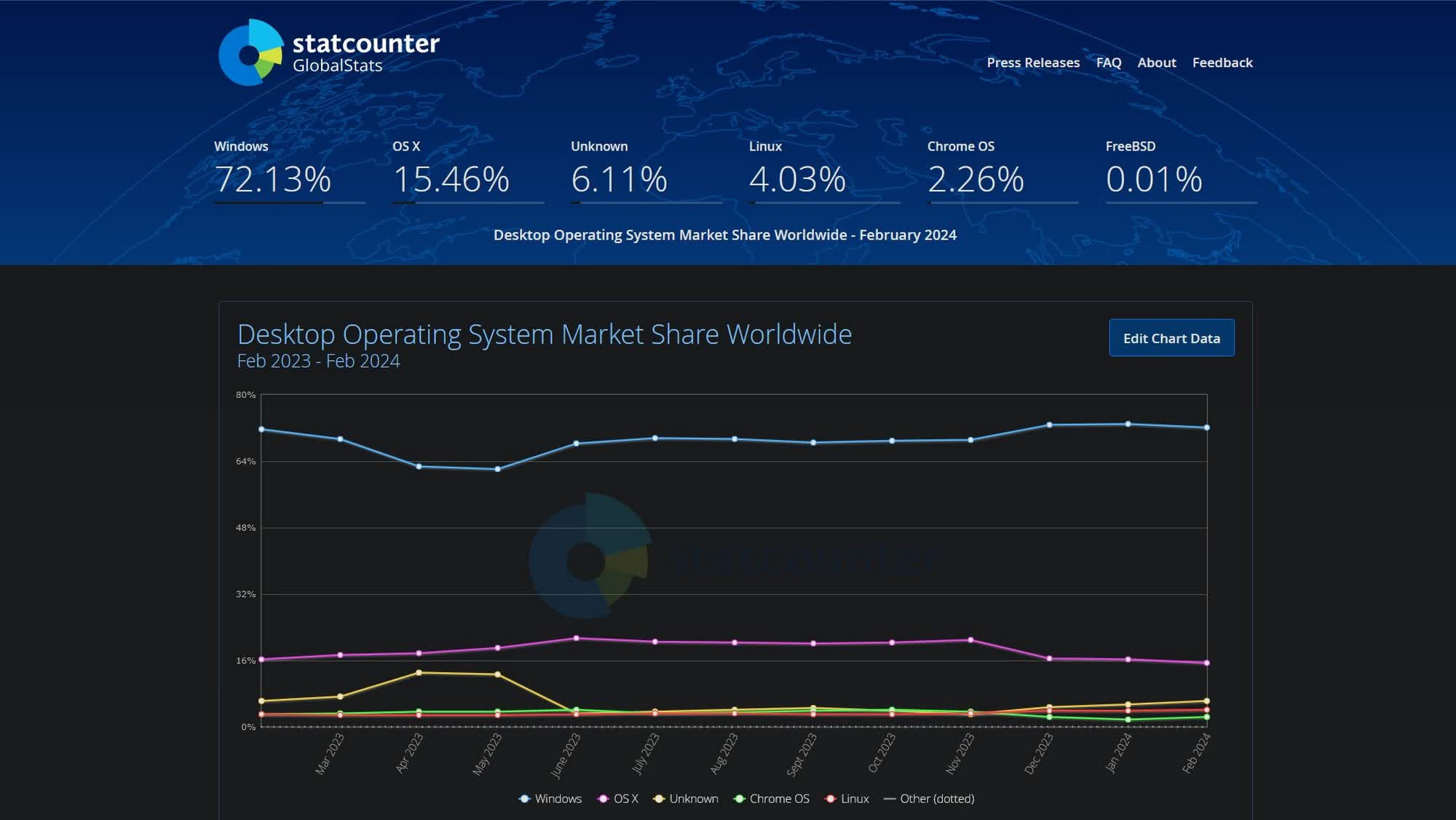What just happened? In the ongoing rivalry between Windows and macOS, Linux has been consistently gaining market share on desktop computers in recent years. The latest data suggests that the combined market share of various Linux distributions reached 4.03% in February, marking an all-time high.
This new milestone comes almost a year after desktop Linux surpassed 3% market share in June 2023 amid fierce competition from other operating systems. At the time, Linux enthusiasts welcomed the news with gusto, and many even went so far as to claim that the so-called "Year of the Desktop Linux" was finally upon us.
While that turned out not to be entirely the case, the gain in market share still shows that the FOSS movement is heading in the right direction.
While Linux has been performing well, it is still only the third-largest OS on client computers. According to StatCounter, Windows leads the overall market with a 72.1% market share at the end of February 2024, while macOS was used by 15.46% of all computers. With the growing popularity of Chromebooks in the education sector, ChromeOS was the fourth most popular client computing platform with a 2.2% market share.
While Linux's popularity on client computers remains modest in the larger scheme of things, this data suggests that it is slowly but surely becoming more popular among consumers who view neither Windows nor macOS as a necessity. While Chromebooks might be a good option for some, many still prefer the idea of a traditional OS on their PC rather than using a cloud-based operating system.
As for the explanation of the recent rise in Linux's popularity, it can be attributed to several factors. Most distributions (distros) are lightweight by design, free from bloatware, and offer almost limitless customization options, making them well-suited for a variety of use cases. With a vast selection of desktop environments like GNOME, KDE, Xfce, and others, users can choose the one that suits their needs and fits their style. Another contributing factor is privacy, as most distros collect little to no user data, unlike the other popular operating systems from Microsoft, Apple, and Google.
Away from mainstream consciousness, Linux has long been the platform of choice for developers, thanks to its open-source libraries that offer unrivaled freedom. The ability to modify the source code and customize desktop environments at the drop of a hat is a highly welcome feature, while community support adds even more allure to an already attractive operating system.
That said, fans and long-time users will be pleased that Linux is now starting to shed its nerdy appeal and becoming relatively more popular among mainstream users. Two typical distros people like to start with these days are Ubuntu or Linux Mint.

